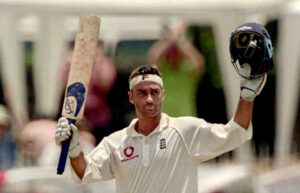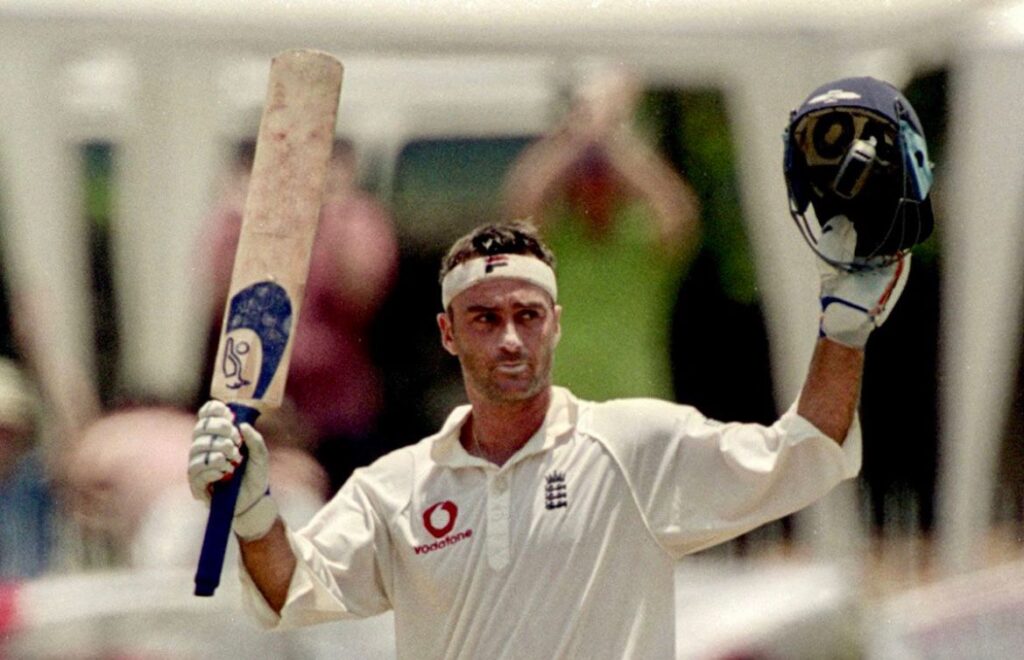
Graham Thorpe, the left-hand middle-order batsman who was one of the fulcrums of the England team in lean times, has passed away at the age of 55 after a long battle with illness. Thorpe played 100 Tests and 82 ODIs for England between 1993 and 2005, and was renowned as someone who could summon up his best in the toughest situations.
Had English cricket not been so Ashes-centric, Thorpe might have been celebrated far more for his batsmanship. But because he played all his international cricket in an era where England were Ashes whipping boys, he never quite got the plaudits that Alastair Cook or Andrew Strauss – who came into the side soon after his retirement from the international scene in 2005 – received for being part of teams that won the urn.
Make no mistake, though, Thorpe was a mighty fine batsman, especially in crunch situations. It started with his debut Test at Trent Bridge in July 1993, when his second-innings 114 not out and partnership of 150 for the sixth wicket with Graham Gooch, his skipper, transformed a likely loss into near-victory. But in a 4-1 series thrashing, it was quickly forgotten.
It was also Thorpe that helped England turn around their fortunes in Asia, with some vital knocks in Pakistan and Sri Lanka in the winter of 2000-01. After scoring a century in Lahore, his unbeaten 64 in near-darkness in Karachi led England to their first series win in Pakistan, in nearly four decades. And that too against Saqlain Mushtaq in his prime.
A few months later, at the Sri Lankan fortress, that was the SSC, Thorpe delivered unbeaten knocks of 113 and 32 against Muttiah Muralitharan and Chaminda Vaas as England beat Sri Lanka 2-1. The following winter, he would show that there was more to his game than middle-order consolidation as he smashed 200 off 231 balls in New Zealand, in a match where Nathan Astle’s even quicker double-hundred nearly stole the game.
That was just months after Thorpe had left a tour of India in a bid to try and save his first marriage. The nasty tabloid headlines clearly affected him, and it was something that Michael Atherton, his captain for much of his England career, often pointed out. A calm and settled Thorpe was a match for any batsman in the world, but when his equilibrium was disturbed, he found it hard to focus on the field.
History, however, will judge him kindly. In an era of exceptional bowlers, Thorpe made 6,744 runs at 44.66. There were 16 centuries, with India the only major cricket-playing nation in which he didn’t score a hundred. His subsequent work as batting coach was also deeply appreciated by a generation that enjoyed far more success than Thorpe had.
For more sports content: https://revsportz.in/




